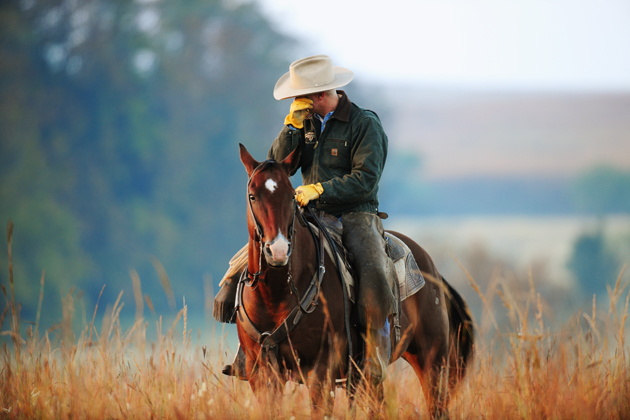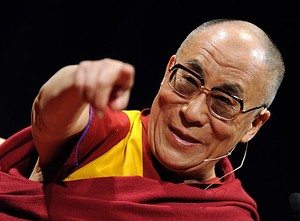January 29, 2010
Today, I said goodbye to my client, JFM. I did not see this coming. A month ago, she was securing a position in a flagship company in her industry. Shortly thereafter, she was accepted into one of the finest international MBA programs in the world. This is the final piece in an eight-part series, chronicling our work together as we have tracked JFM through a full year of unemployment, exploring the inner journey, and its relationship to leadership. She sought me out as a leadership coach a year ago, after being fired from her position as president of a medium-sized company.
JFM: When I was in college, I became very ill. I was in and out of the hospital, and my grades suffered as a result. When I applied to this MBA program, I never thought that I would be accepted. The school contacted me earlier this week, offering me a place in their program. I have been teary for the past two days.
To accept this invitation is not the easy choice. We are selling our home to make this happen. I never thought that I could sell my house. I worried about this as a possible outcome all year long. For the past year, I have been driven to maintain my life as I have known it, to recreate all that was familiar. But when it came time to make the decision to sell the house, somehow, I was ready to let it go. I am learning to release my death grip on life.
For years, I have turned away from a strong intuitive knowing. I feel like I have betrayed myself by ignoring this voice. I was always trying to do the right thing, to be perfect in the eyes of those around me. My career offered me a well-travelled trajectory. I watched others follow this trajectory; I watched many people ‘advance.’ I was on this same path and I never strayed far. I lost my inner guidance along the way.
Now, it is as if the world has blown open. There is no trajectory. I am going to Europe, and I will study for the next year. I feel like a dry sponge; I can’t wait to soak up knowledge. As I step away from what is known, and the illusory sense of certainty that it offered, my life feels a little more frightening, but also unshackled. I do not want to betray myself any further.
Jan: Everything that you have learned this past year, including both the experience of not listening to your inner voice, and your present sense of self-betrayal as a result, is grist for the mill. In this sense, you can make friends with your ‘self-betrayal.’ It has been such a teacher.
Long silence. JFM gently cries.
Jan: You are experiencing what it means to live according to the guidance of your own true Self. Our true Self arises from an infinite field of intelligent awareness. To lead from this place of truth is the highest form of leadership.
It requires tremendous discernment to know when we are deciding from this place of inner truth, and when our actions or decisions are generated from the mind, or ego. Our true Self embodies the highest virtues - Truth, Joy, Equanimity, Courage, Unconditional Love, Authenticity, Hope, Humility. Our mind, however, tends to be fear-based, preoccupied with our survival and well-being. When our decisions arise solely from the mind, we begin to feel alienated from ourselves, and this, in turn, creates a sense of alienation from the world around us. We experience the world as chaotic, as though we have to fend for ourselves, hold ourselves up by our own bootstraps. We feel separated from the very fabric of existence, and the matrix of interconnection that we are embedded within. This sense of existential separation is a root cause of greed. Our response is to hoard, plan, and obsessively strategize. If we do not have the experience of living any other way, then the thought of releasing the illusion of a ‘planned trajectory’ is terrifying. You were standing at this crossroad when I first met you. A part of you wanted to live differently, and a part of you was terrified of leaving your well-worn path.
You have asked, ‘How do I know when a decision is coming from my mind versus my highest Self?’ Many times, I have said, ‘Study your own process. Test what is true, and how things work, through your own experience. Observe carefully within your own life the place from which your actions and decisions arise, and notice what happens. Practice discernment.’
Discernment begins with becoming more alert to the ground that is right under your feet. We sometimes refer to this as presence. It often requires beginning to notice how you actually pay attention, opening and widening your perceptual field, so that you have the capacity to attend to the inner and the outer world at the same time. The mind plays the critical role of discrimination in this process. It does this best when it is spacious and open.
To better discern we have to be willing to face into the dark side of being human – our greed, fear, deceit, judgement, impatience, and limited capacity to love. This is necessary so that we begin to identify what makes us vulnerable to not facing our inner truth. These limitations are a part of being human. To face ourselves requires humility, and a tremendous amount of courage.
You have demonstrated that courage. Our work together this past year, most of which has not been chronicled, has been an invitation to take an unflinching look at yourself. You have been willing to face moments of self-deceit, shame, arrogance, insecurity, grief, and self-imposed limitations. As you do this, you begin to sort out the image that you hold of yourself from what is true. You are better able to discern when decisions are arising from the darker places within you, and when they are arising from your true Self.
As we were coming to the end of our last session, you began to cry. You said that you were going to miss this process, and me. I did not see this coming. I said, ‘We don’t have to say goodbye quite yet. You can come back next month.’ I then heard from that place of knowing within myself, ‘No, Jan, let her go. She is saying goodbye to you, and this is correct. It is time to let go.’ But my mind protested. I repeated, ‘You can come back.’ You did not say anything, but, instead, wept quietly. Again, I heard, ‘Let her go. Turn towards this moment in which she is saying goodbye to you.’ I shared with you that I am one of those people that slips out of the backdoor at a party, instead of saying goodbye to the host. In that moment, I watched my own resistance to separation, to endings. We both cried, saying goodbye, with your intuitive knowing – your own true Self - as the voice of recognition that it was time.
http://www.huffingtonpost.com/jan-birchfield-phd/a-dialogue-on-leadership_b_441665.html
 My grandmother’s name was Flora, and she was all heart. Born and raised in Bristol, Tennessee, she had a deep connection to Appalachia. On occasion, I would ride with her into the Appalachian Mountains with a station wagon full of groceries to be delivered to several dirt-poor families that she watched out for. There wasn’t an arrogant bone in my grandmother’s body, a sense that she understood poverty from the inside out and took it in stride – both the fact of being poor and her service to those that needed help. As a result, there wasn’t shame in these exchanges, and I so loved accompanying her.
There were other times, however, when I was embarrassed by my grandmother’s service. She had a compulsion to give, and this meant that she wasn’t always able to discern when to step in and when to step back. On occasion, I stood as witness as my grandma insisted on paying for someone else’s groceries – a random person that she thought might be struggling. There were times when this gesture was a lovely act of generosity. Other times, standing next to her, I wanted to sink into the earth, my body full of dread - a dead giveaway that my grandmother had overstepped an invisible boundary.
My grandmother’s name was Flora, and she was all heart. Born and raised in Bristol, Tennessee, she had a deep connection to Appalachia. On occasion, I would ride with her into the Appalachian Mountains with a station wagon full of groceries to be delivered to several dirt-poor families that she watched out for. There wasn’t an arrogant bone in my grandmother’s body, a sense that she understood poverty from the inside out and took it in stride – both the fact of being poor and her service to those that needed help. As a result, there wasn’t shame in these exchanges, and I so loved accompanying her.
There were other times, however, when I was embarrassed by my grandmother’s service. She had a compulsion to give, and this meant that she wasn’t always able to discern when to step in and when to step back. On occasion, I stood as witness as my grandma insisted on paying for someone else’s groceries – a random person that she thought might be struggling. There were times when this gesture was a lovely act of generosity. Other times, standing next to her, I wanted to sink into the earth, my body full of dread - a dead giveaway that my grandmother had overstepped an invisible boundary.
